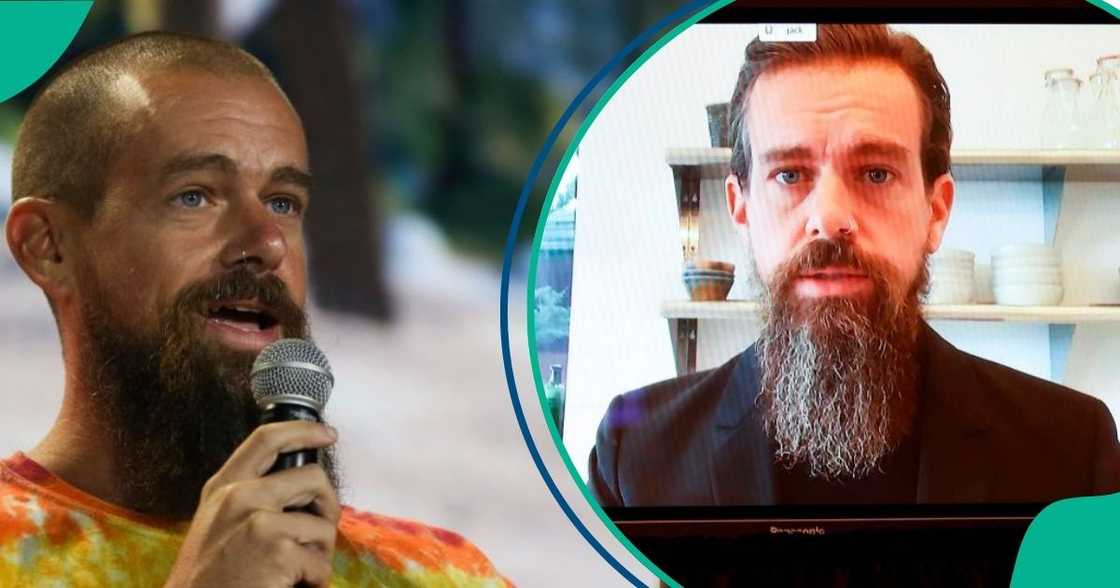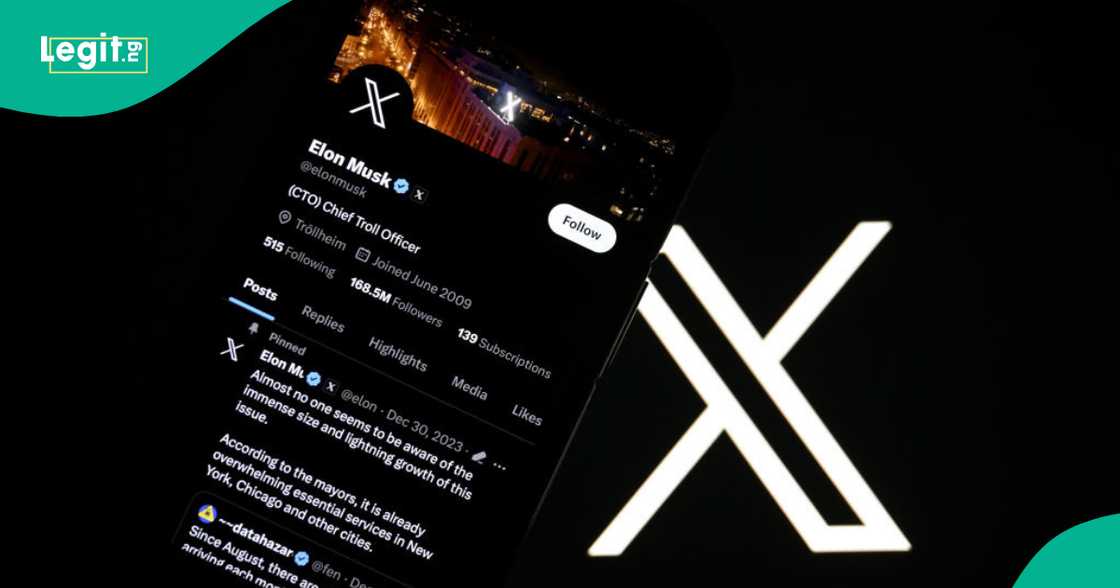Jack Dorsey Launches Bitchat, a WhatsApp Rival That Works Without Internet or Phone Numbers
- Twitter founder and Block CEO, Jack Dorsey, has announced the launch of a new messaging platform to rival WhatsApp and others
- Dorsey disclosed in a recent post on X that the new platform functions without an internet connection but uses Bluetooth mesh networks
- He said that the new platform does not require usernames, phone numbers or emails for connection
Legit.ng’s Pascal Oparada has reported on tech, energy, stocks, investment and the economy for over a decade.
Block CEO and Twitter founder, Jack Dorsey, has launched Bitchat, a new decentralised peer-to-peer (P2P) messaging app that works over Bluetooth mesh networks, with no internet, central servers, phone numbers or emails.
Dorsey announced on Sunday, July 6, 2025, that the beta version is live on TestFlight, with a full white paper available on GitHub.

Source: Getty Images
How does Bitchat work?
Dorsey announced in a post on X on Sunday, July 6, 2025, that the new app is a personal experiment in Bluetooth mesh networks, relays and stores, and store-and-forward models, message encryption, and a few other things.
According to him, Bitchat enables ephemeral, encrypted communication between nearby devices.
CNBC reported that as users move through physical space, their phones form local Bluetooth clusters and pass messages from device to device, allowing them to reach peers beyond standard range, even without Wi-Fi or cell signals.
Dorsey disclosed that bridge devices connect to overlapping clusters, increasing the mesh across greater distances.
Messages are stored only on devices, disappear by default and never touch centralised infrastructure, showing Dorsey’s push for privacy-preserving censorship-resistant communication, experts say.
How are messages sent?
Bitchat’s launch builds on his support for Damus and Bluesky and reflects a broader campaign to decentralise everything from social media to payments.
Bitchat is designed to keep working when the internet is blocked, offering a censorship-resistant way to stay connected during outages, shutdowns or surveillance.
The new app also supports optional group chats, or rooms, which can be named with hashtags and protected by passwords.
It includes store-and-forward functions that deliver messages to offline users.
According to reports, a future update will add WiFi Direct to increase speed and range, pushing Dorsey’s plan for off-grid, user-owned communication further.
How Bitchat is different from others
Jack Dorsey's Bitchat introduces several unique features that set it apart from traditional chat apps. One of the key distinctions is its focus on privacy and decentralisation.
Unlike many popular messaging platforms, which rely on central servers to manage user data, Bitchat utilises decentralised technology, ensuring that messages are not stored or controlled by a central authority.
This approach prioritises user privacy and security, as users have more control over their data.
Also, Bitchat integrates Bitcoin's Lightning Network for fast, low-cost transactions. This allows users to send micro-payments within the chat, creating a seamless link between communication and cryptocurrency.
This is especially appealing for users looking for a platform that combines social interaction with financial transactions, all while ensuring anonymity and decentralisation.
Another standout feature is its open-source nature, allowing developers to contribute and build on the platform. This openness fosters innovation and ensures that the app evolves based on user and community feedback, rather than corporate interests.
Overall, Bitchat's emphasis on privacy, decentralised control, and integration with cryptocurrency makes it a refreshing alternative to traditional messaging apps.
Elon Musk seeks to offstage WhatsApp
Unlike mainstream messaging apps such as WhatsApp, Messenger, and Telegram, Bitchat operates peer-to-peer with no accounts, no identifiers and no data collection.
The development comes as Elon Musk announced the launch of xChat, another messaging platform to rival WhatsApp and popular messaging platforms.
Tesla CEO claims that the new XChat feature of the platform will offer encryption, disappearing messages and cross-platform audio and video calls.
He noted that the direct messaging (DM) feature is set to redefine communication on the platform.

Source: Getty Images
The Times of India reports that Elon Musk said that XChat is built on Rust, a programming language known for its speed and security, and employs encryption methods similar to Bitcoin’s protocol to enhance privacy and data protection.
Meta introduces per-message billing for WhatsApp Business
Legit.ng earlier reported that the world’s most popular messaging platform, WhatsApp, commenced a per-message billing system for businesses using the platform, starting July 1, 2025.
The move marked a major departure from how the messaging app monetises its business communication.
Previously, businesses were charged for a 24-hour conversation window, regardless of how many marketing messages were exchanged.
This article has been updated by the head of business desk, Victor Enengedi, with additional information.
Proofreading by Kola Muhammed, copy editor at Legit.ng.
Source: Legit.ng





